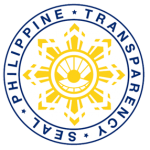Technical staff members of the Philippine Carabao Center (PCC) acquired additional knowledge on the molecular and statistical methods and approaches applied to animal selection and breeding thru the training-course they attended for over a month.
The training was conducted at the Parco Tecnologico Padano in Italy from June 1 to July 7, 2013.
Titled “Livestock Genomics and Bioinformatics”, the training was aimed at providing knowledge on the different bioinformatics tools and genomic platforms which are considered of great help for genetic selection.
Moreover, it provided the technical staff members knowledge and skills on how to generate useful biological data in a relatively short period of time using the bioinformatics tools.
The Science Research Assistants of PCC who participated in the training-course were Dr. Lawrence P. Belotindos, Trinidad C. Fernando, and Laila M. Labonite who are from the National Headquarters and Genepool. One Supervising Science Research Specialist of PCC at University of the Philippines-Los Baños (PCC at UPLB), Dr. Jesus Rommel V. Herrera, also attended the training.
Genomics is defined as the study of genes and its functions. It aims to understand the structure of the genome as well as mapping genes and sequencing DNA.
Genomics also examines the molecular mechanisms and interaction of genetic and environmental factors of disease.
Further, the birth of the term “genomics” was suggested by T.H. Roderick of the Jackson Laboratory, Bar Harbor, Maine, due to the newly developing discipline of mapping and sequencing.
The new discipline was born from a marriage of molecular and cell biology with classical genetics and is nurtured by computational science.
Bioinformatics, on the other hand, is the collection, classification, storage, and analysis of biochemical and biological data using computers particularly as applied to molecular genetics and genomics. The trainees were also introduced to the use of Linux as the operating system of the server.
Thru the use of Lubuntu Linux operating system, the trainees were able to make directories and write and edit files which are beneficial especially in the genotype data for it has a large amount of text.
According to Laila M. Labonite, one of the research assistants of PCC who joined the training, bioinformatics tools taught include R statistics for statistical computations and graphical representations, MySQL as a database for records which both use Linux commands to operate and G matrix which is used to compute the matrix of marker genotypes per individual for genomic relationship.
“In parentage testing, I gained additional knowledge on how to analyze the generated data. They discussed thoroughly how data are being generated. As a result, I feel more confident now with the data I generate,” Ms. Fernando, one of the trainees, said.
Among the other lectures included were molecular biology of production traits and genetic markers, the theory and practice of breeding and genomic selection.
“Generally, in bioinformatics, we also performed statistical analysis, although they only showed us how to do it, we grasped some ideas on what specific software to use in generating biological data. The design and program of our training were indeed appropriate to us because it started from the basics,” Ms. Fernando, added.
In addition to the course training, the trainees were given “offsite” activities such as high-throughput genotyping services, introduction to genetic diversity, conservation of genetic diversity, and high-throughput genotyping and parentage testing for buffalo.
“With our offsite visit to KOS Genetics and Laboratorio Genetica é Servici (LGS), the actual use of SNP chip was demonstrated. Using the SNP chip, these companies were able to sequence the whole genome of the samples of outsourcing institutions or farms for their services. The SNP chips available can be used mainly for parentage testing and genome wide association studies. However, the use of SNP chip entails thousands of samples to be used for study. With this, they recommended that outsourcing will be better since we have limited samples, thus, possible collaboration with Parco Tecnologico Padano for association studies and LGS for parentage testing,” Dr. Rommel Herrera, one of the participants in the training, said.
PCC technical staff members undergo genomics and bioinformatics training in Italy












